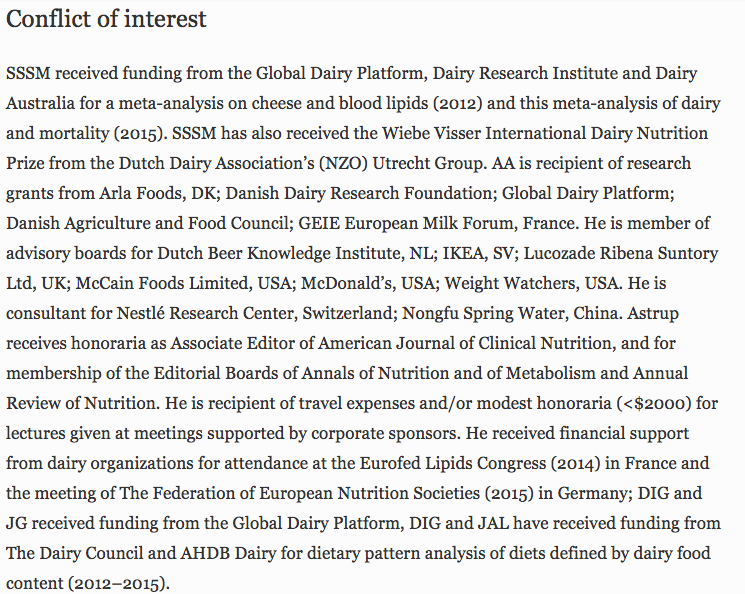Apparently, eating cheese will not cause a heart attack or stroke, according to a new study that lots of folks are writing about. But readers, fellow science and health writers, can we please all agree to read these studies and think about them a little before we take them as the irreproachable word of some dairy overlord?
Image: Aimee Custis Photography/Flickr
Why do I say that? The news coverage for this paper, published recently in the European Journal of Epidemiology, was essentially an ad for dairy. The study did find that dairy products neither help nor hurt your chances of getting heart disease as well as other things, but the authors had a lot of conflicts of interests that few news sources reported on. I only found a single sceptical line in any of the otherwise breathless media coverage — the statement below in The Guardian, which The Independent also cited:
The research was part-funded by the three pro-dairy groups — Global Dairy Platform, Dairy Research Institute and Dairy Australia — but they had no influence over it, the paper said. Givens is an adviser to the Food Standards Agency.
I know how much we all like cheese. I like cheese too. I’ve written near love-letters to milk fat. We all want cheese to be Good. Cheese probably is good. But that doesn’t mean we can just take an industry-funded study, clap our hands, take a sip of molten cheddar and say ah, yes, The Science Is Settled. Cheese Is Now Good.
So, what’s the problem with this study, you might ask? It’s a meta-analysis, meaning lots of studies’ data pooled together. I love meta-analyses. But the glaring problem with any meta-analysis is that scientists get to pick what papers they include and what papers they don’t. In this case, the researchers excluded any study where the participants eating the cheese were children, or had prior cases of cardiovascular disease, diabetes or other chronic disease. The scientists also get to weight the data and devise the computer models they use to analyse it.
These researchers found that eating lots of dairy fat didn’t correlate with increased mortality rate, nor did it correlate with increased heart problems. They conclude that eating dairy products specifically doesn’t help or hurt you in any way, aside from one study that seems to hint that eating yogurt might help prevent cardiovascular disease.

Initials are those of the paper’s authors (Image: Guo et al)
I’m not saying anything is wrong with this study — the researchers even weight the studies they include in their meta-analysis based on bias, including who funded them. And food scientists frequently rely on industry funding to get their work done.
But we citizens need to know about conflicts of interest when we’re told studies say things, if we want to make accurate decisions. That’s why this free-to-read paper lists the conflict of interests, and that’s why you should know about them, too. And the COI list for this paper is so long that I’m including it as a screenshot, rather than a pasted quote, to save space.
So, all I ask is that you not take every single health news story you read at face value — click through to the study, look who did the research and who funded it, then weigh your own conclusions accordingly. And remember, you can pay to get science done for you.
[European Journal of Epidemiology via every headline on Google Health News]
